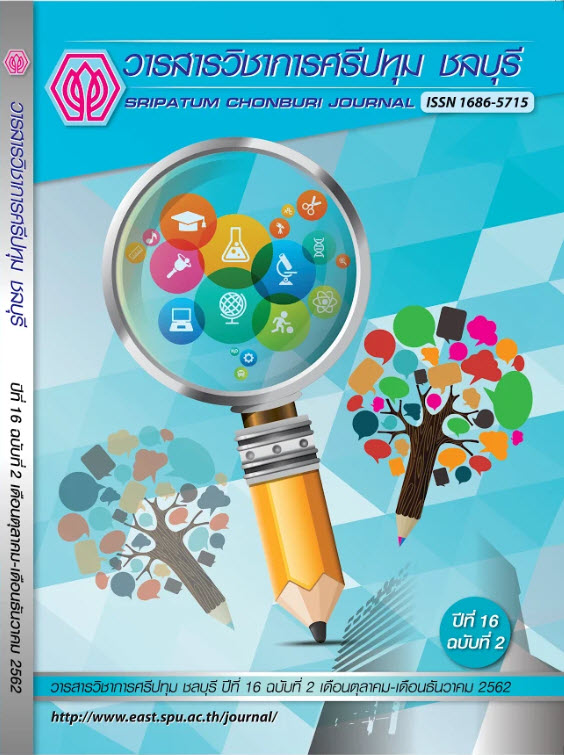THE EFFECT OF VIDEO MEDIA ON KNOWLEDGE AND CARING BEHAVIOR OF FAMILY MEMBERS OF CATARACT EXTRACTION SURGERY PATIENTS, SING BURI HOSPITAL
Keywords:
video media, caring behavior, cataract, Sing-Buri HospitalAbstract
The purposes of this research were to study the effect of video media on knowledge and caring behavior of family members of cataract extraction surgery patients of Sing-Buri Hospital. This is a quasi-experimental research by post-test only. The sample was 60 family members of cataract extraction surgery patients based on selected criteria. They were chosen by purposive sampling method. They were divided into experimental and control groups with split-half for each groups. Data were collected twice, after instruction immediately, and then 1 week after operation at outpatient department. Concept of self-care deficiency Orem and cognitive theory of Bandura were applied to design. Research instrument consist of the video media,s content includes knowledge and caring behavior of pre-post cataract surgery, and the family member behavior questionnaire for taking care of patient. Content validity was examined by experts. The reliability for knowledge scale by KR-20 was .85 and behavior scale by Alpha Cronbach’s coefficient was .91. Data were analyzed by using the statistical, frequency, percentage, mean, standard deviation and independent t-test.
Major finding was as follows: both time of knowledge score and caring behavior of family members of cataract extraction surgery patients in experimental group were statistically higher than the control group at the level of .01. The results of this study could be used to prepare family members of cataract extraction surgery patients before and after cataract surgery.
References
สุรพีย์ มาสมบูรณ์. (2553). ปัจจัยที่มีผลต่อพฤติกรรมการดูแลตนเองของผู้ป่วยโรคต้อกระจกที่มารับการผ่าตัดต้อกระจกใส่เลนส์แก้วตาเทียมในโรงพยาบาลพระมงกุฎเกล้า. วิทยานิพนธ์วิทยาศาสตรมหาบัณฑิต สาขาวิชาสุขศึกษา, บัณฑิตวิทยาลัย มหาวิทยาลัยเกษตรศาสตร์.
Bandura, A. (1989). Principle of behavior modification. New York, NY: Holt Rinehart and Winston.
Dale, E. (1969). Audio-visual methods in teaching (3rd ed.). New York, NY: Holt, Rinehart and Winston.
Johns, K. J. (1996). Basic and clinical science course, 1996-1997 Section 11 Lens and cataract. San Francisco, CA: American Academy of Ophthalmology.
Malithong, K. (2005). Technology and communication for education. Bangkok, Thailand: Aroon.
Ministry of Public Health. (2006). Workshop of preventing blindness in the region Indochina and Southeast Asia 6th. Bangkok, Thailand: Ministry of Public Health.
Orem, D. E. (1995). Nursing concepts of practice (5th ed.). St. Louis, MO: Mosby-Year Book.
Polit, D. F., & Hungler, B. P. (1999). Nursing research: Principles and methods. Philadelphia, PA: Lippincott,
Thailand Association of the Blind. (2015). Thailand country report 2014. Bangkok, Thailand: World Blind Union - Asia Pacific.
Wongkittirak, S., & Kitsiripaiboon, S. (2007). Eye health handbook for public and health provider. Bangkok, Thailand: Pimdee.
Downloads
Published
Issue
Section
License
บทความทุกบทความเป็นลิขสิทธิ์ของวารสารวิชาการศรีปทุม ชลบุรี



